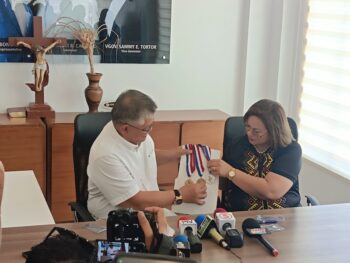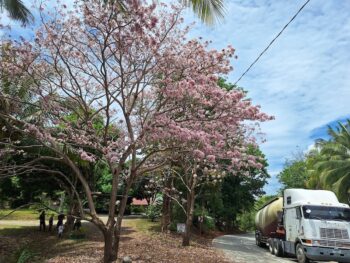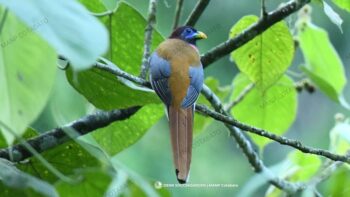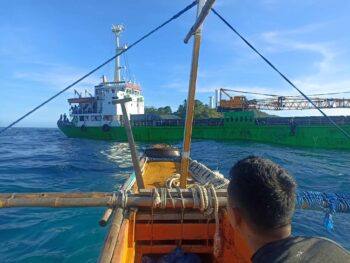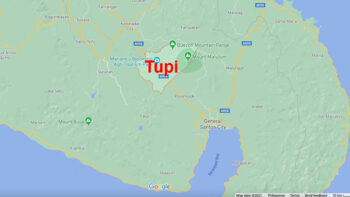MAITUM, Sarangani (MindaNews / 12 July) – In this rustic coastal town where swathes of rice, corn, banana, cacao and coconut fields dominate the agricultural landscape, a millennial has taken a great leap of faith by planting vanilla, a crop that has never been tried and tested for commercial purposes in Soccsksargen or Region 12, and perhaps in the rest of Mindanao.
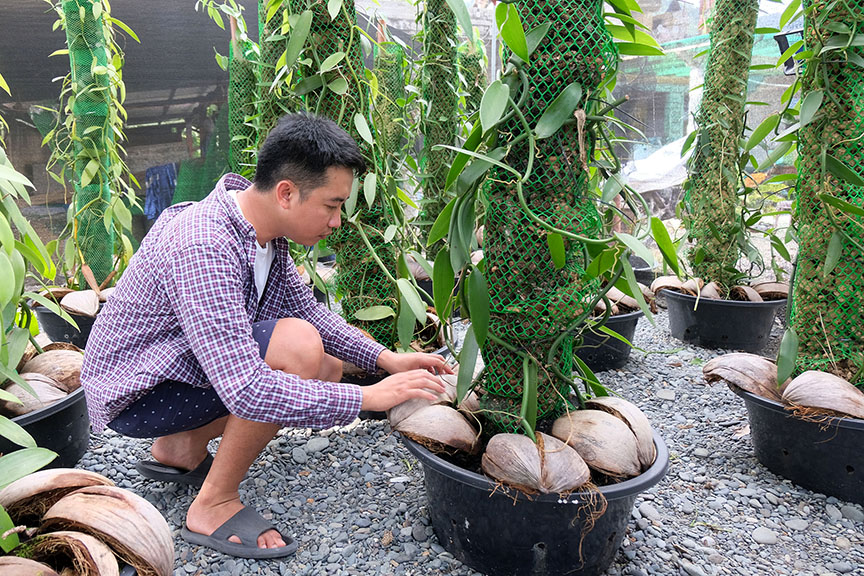
As a seaman, 29-year-old Melvin Awid had basically trotted the globe. He stumbled upon the prospects of vanilla during a brief stopover in Madagascar, an island-country lying off the southeastern coast of Africa just before the COVID-19 pandemic disrupted the global order in early 2020.
Madagascar is the world’s largest producer of vanilla in both quality and quantity.
“While our vessel was anchored, I smelled a scent of vanilla from this laborer.
It was so good that I got curious. Fortunately, he was kind and walked me through the basics of the vanilla plant,” he told MindaNews.
“Vanilla is a versatile crop. It can be used in food, beverage and cosmetics,” he added.
Next to saffron, vanilla is the second most expensive spice traded globally. According to Zion Market Research, the vanilla global market accounted for $510 million in 2018 and is expected to grow to $735 million by 2026.
In a one-half hectare plot within the family’s five-hectare farm in Barangay Kalaneg, Awid has successfully cultivated at least 500 vanilla plants – from 25 saplings when he started the venture in December 2020.
An orchid vine, his vanilla plants crawled on madre de cacao trees that he also planted simultaneously then. He propagated the plant through cuttings.
A graduate of the Davao Merchant Marine Academy of Southern Philippines, from an ordinary seaman doing cleaner jobs, Awid rose from the ranks to become a merchant officer, serving as safety officer or someone doing administrative works.
He was already earning a six-digit salary, but quit the job after five years to pursue vanilla farming in his quaint hometown, about three hours away from General Santos City.
As a seafarer, Awid successfully propagated vanilla aboard a ship, giving him the spark that if it can thrive in the sea, it can also do well on land.
He had proven himself right.
After three years of vanilla farming, he is now producing pure vanilla extract for food flavoring enhancement – selling to five-star hotels or plush restaurants in the metropolitan areas of the country.
His venture is known as UF Vanilla Farm. It has gained the attention of the Department of Agriculture and the municipal and provincial governments, which vowed to support his project. Awid established a demonstration facility just outside their house in Barangay Kalaneg, where he welcomed visitors. He does not allow them to visit his main vanilla farm not far away for biosafety reasons.
Compared to the cheap synthetic vanilla flavoring products awash in the market, which can be bought for P110 per liter in online shops, Awid’s pure vanilla extract sells at P3,500 for the 350-milliliter bottle, or P10 per mL.
There is a big market for non-synthetic vanilla in the domestic and global markets, he said, noting that his vision is to make Sarangani as the “Vanilla Capital of the Philippines.”
For the first time, UF Vanilla Farm was given national exposure after Awid was invited to display his products at the Manila Foods and Beverage Expo at the World Trade Center in Manila last month.
Sarangani Gov. Rogelio Pacquiao and the Office of the Provincial Agriculturist have expressed support to Awid’s project by pledging to allot a budget to disperse vanilla cuttings to farmers.
Sarangani is in the top 10 poorest provinces of the Philippines and vanilla cultivation could be a way out of that classification by engaging indigenous peoples and out-of-school youths to plant the lucrative crop, Awid said.
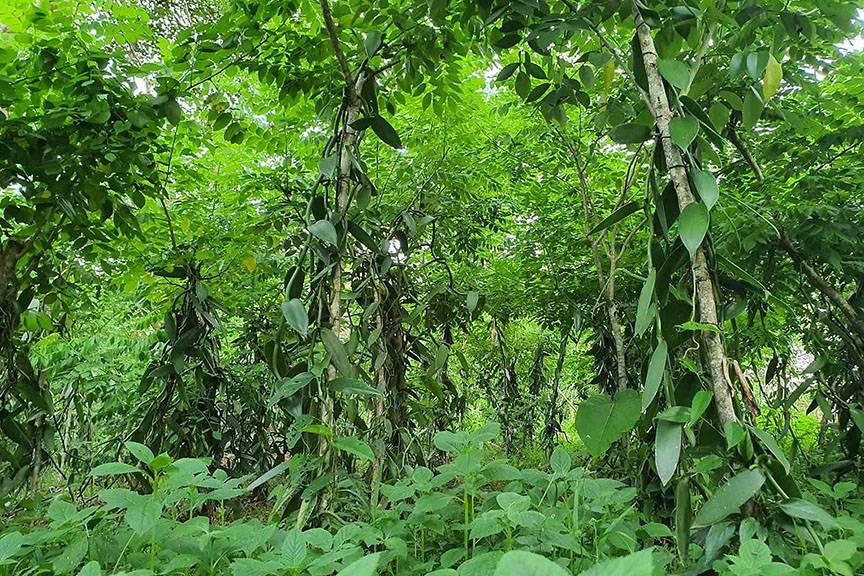
Vanilla thrives well in shaded areas and does not need plenty of water, he said.
Hence letting the plant crawl in madre de cacao trees, which is easy to propagate, is a good and cheap farming practice, he added.
Awid said that from planting, vanilla can flower in three years with one plant producing at least 2.5 kilograms of pods, which when processed can yield 10 liters of vanilla extract for food flavoring or five to 25 mL of pure essential oil.
A vanilla plant has a productive life span of 10 to 15 years.
In a time when children of farmers tend to shy away from farming due to low earnings – with an inclination towards white collar jobs – Awid is making a career shift many may frown upon for leaving his lucrative job as a seafarer.
“But farming is not a mediocre profession. In the case of vanilla, there’s a big opportunity from it,” he stressed, saying once his plants reach their full potential, he can earn even bigger than his stint on board sea vessels.
“While earning from farming, I also have the precious luxury of owning my time,” Awid beamed.
According to him, a potential client from the United States is looking for suppliers of pure vanilla extracts who can produce a volume of at least 100,000 tons per year.
Some 50 to 100 hectares of vanilla farm can produce such volume, Awid said, urging farmers in Sarangani and neighboring provinces to shift to vanilla farming.
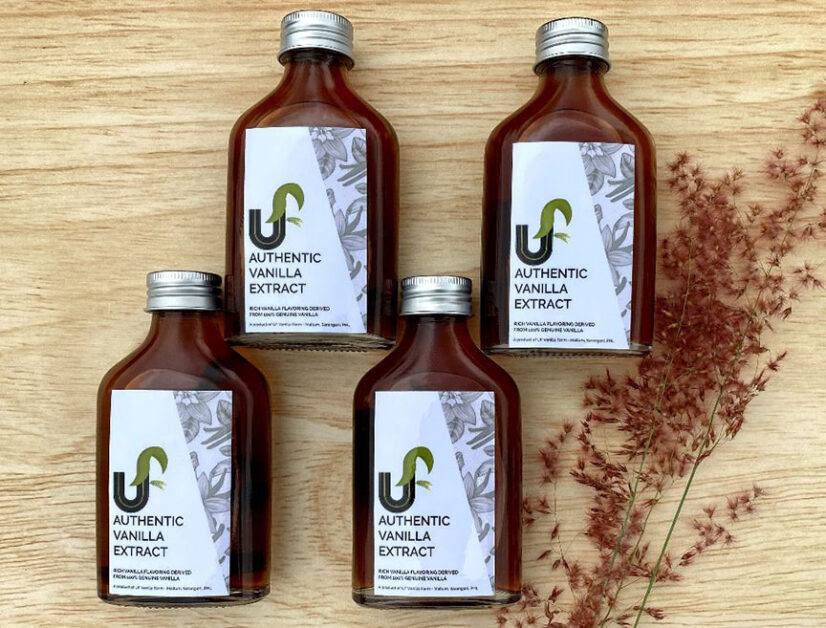
“With more farmers planting vanilla, we are looking to consolidate our production so we can meet the demand of big clients,” he said.
Admittedly, vanilla farming is relatively new in the Philippines, with few farms in Luzon cultivating the crop so far.
By taking a leap of faith, Awid is hoping he can trigger other farmers or even small backyard owners, beginning in his province, to start farming vanilla. (Bong S. Sarmiento / MindaNews)

